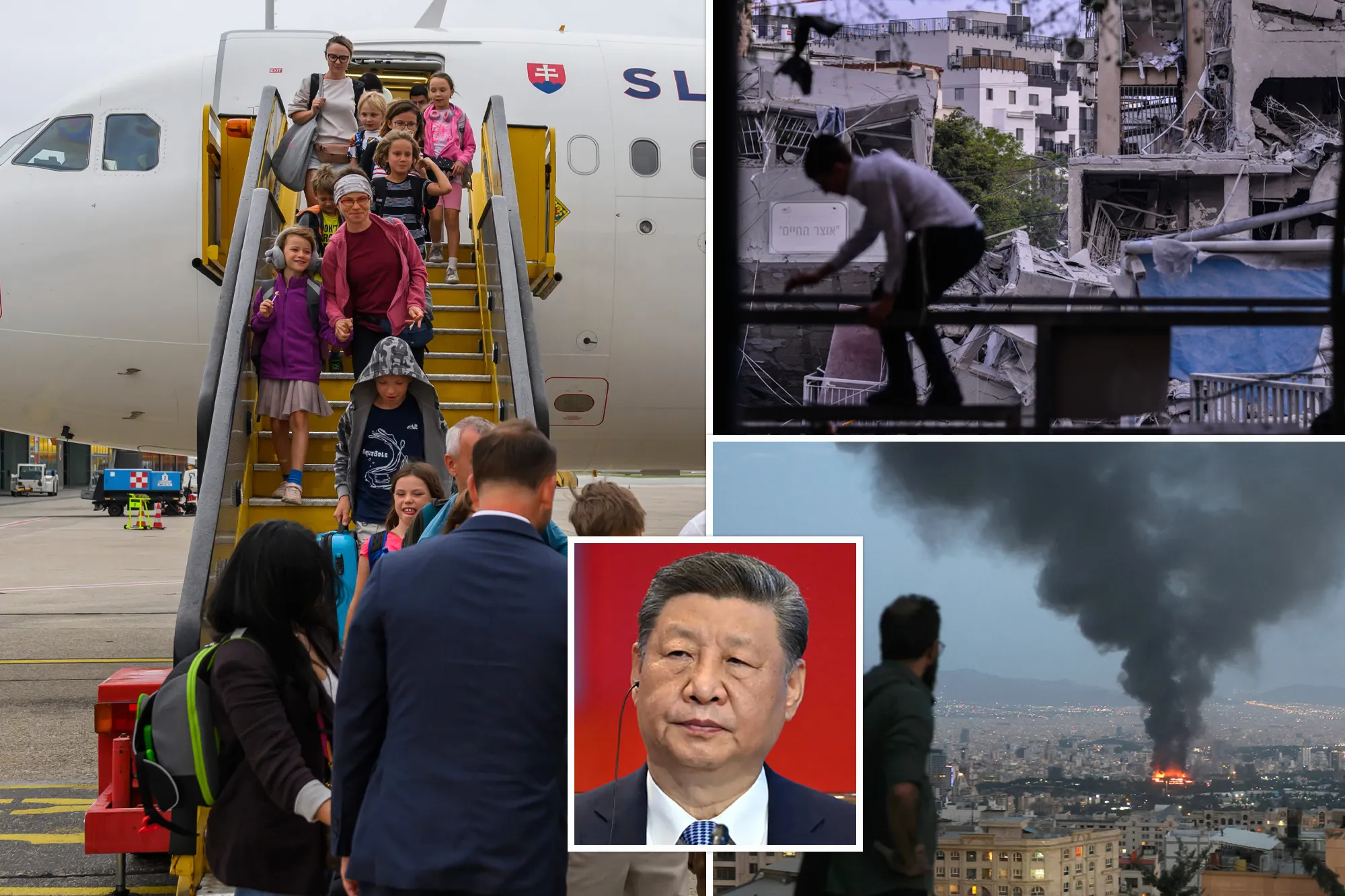In a sharp escalation of Middle East hostilities, both India and China have issued emergency advisories urging their nationals to immediately evacuate from Iran and Israel.
The appeals come amid growing fears of an all-out regional conflict, triggered by unprecedented military strikes between the two rival powers.
India’s Ministry of External Affairs sounded the alarm through its Embassy in Tehran, urging Indian nationals and Persons of Indian Origin (PIOs) in Tehran and nearby regions to “relocate to safer places or depart Iran as soon as possible.” The warning follows recent Israeli airstrikes on the Iranian capital, part of an ongoing campaign known as Operation Rising Lion.
According to media reports, over 1,500 Indian students are currently scattered across Iran. Embassy officials are advising those near the Armenian border to proceed in that direction, where assistance for crossing is being organized.
The Chinese Foreign Ministry has also called on its citizens to leave both Iran and Israel “as soon as possible.” The Chinese Embassy in Tel Aviv suggested land evacuation through Jordan, given the closure of Israeli airspace.
Beijing cited the worsening situation following days of sustained missile and drone attacks, which have caused widespread damage to civilian infrastructure, including hospitals, apartment complexes, and schools.
The current crisis erupted after Israel’s military launched precision airstrikes against suspected Iranian nuclear and military sites. Iran responded with a barrage of missile strikes on Israeli towns like Haifa, Ashkelon, and the outskirts of Tel Aviv. Both nations have reported casualties and damage, with fears rising that Hezbollah and other regional militias may be drawn in.
In a televised address, Israeli Prime Minister Benjamin Netanyahu vowed to continue dismantling Iran’s offensive capabilities, while Tehran’s leadership has declared its right to self-defense under international law.
Ordinary citizens are bearing the brunt of the violence. Panic has gripped Tehran, where power outages, food shortages, and fuel lines have become common. In interviews with regional media, Indian students described harrowing journeys through military checkpoints toward the border with Azerbaijan.
Also Read; G7 Condemns Iran, Backs Israel Amid Conflict
Iranian health officials say at least 585 civilians have died, with over 1,300 injured. In Israel, more than two dozen people have been killed, including children. Human rights groups have raised alarm over possible violations of the Geneva Conventions.
International pressure for de-escalation is mounting. The United Nations Security Council (UNSC) convened an emergency session, while members of the G7 bloc—including France, Germany, and Japan—have urged both sides to return to diplomacy.
Countries including Slovakia, Thailand, Czech Republic, and Poland are actively evacuating their nationals through land routes or chartered flights.
As missiles continue to fall and diplomatic efforts remain gridlocked, nations are racing against time to bring their people to safety. Citizens still in the region are strongly advised to remain in contact with their embassies, monitor verified alerts, and avoid all non-essential movement.







